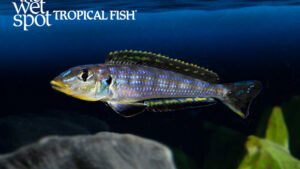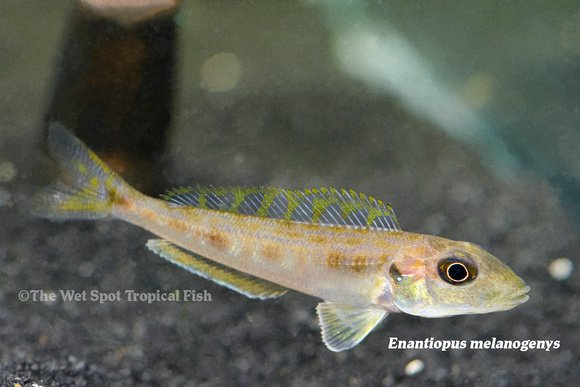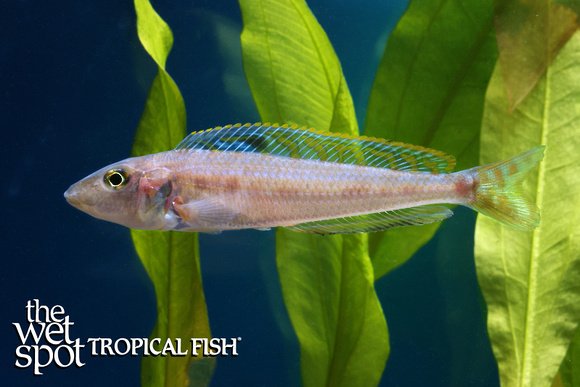Enantiopus melanogenys
$29.99
Please note that the fish shown in the photo is not the exact fish you will receive and is only a representative of what a specimen will look like. The color may vary based on the age and sex (if listed as unsexed) of the fish you receive. This fish is NOT guaranteed for live arrival due to it’s sensitive nature.
Description
Enantiopus melanogenys
Origin: Lake Tanganyika, Africa
Geographic Range: Sandy shallows along the shores of Lake Tanganyika.
Diet: Carnivore; In the wild, they feed on small invertebrates and zooplankton. Provide a varied diet including high-quality pellets, flakes, and occasional live or frozen foods like brine shrimp or small crustaceans.
Average Adult Size: Around 4-5 inches (10-12 cm)
Sexual Dimorphism: Limited sexual dimorphism; males may have slightly more extended finnage and brighter coloration.
Minimum Tank Size: 75 gallons or larger for a colony of Enantiopus melanogenys.
Temperament: Generally peaceful, but males can be territorial during breeding. Best kept in a species-specific setup or with other peaceful Tanganyikan cichlids.
Recommended Water Parameters:
pH: 7.8-8.5
Temp: 75-80°F (24-27°C)
Hardness: 8-15 dGH
Ammonia: 0ppm
Nitrite: 0ppm
Nitrate: Under 20ppm
Note: Enantiopus melanogenys is well-suited to a sandy substrate. Mimic their natural habitat by providing a tank with a sandy bottom. They are substrate spawners, and the tank should include rocks and shells for potential breeding sites. Maintain stable water conditions and avoid aggressive tankmates.
ENA15CB0
Related products
-

"Murago"
$19.99 Out of Stock This product has multiple variants. The options may be chosen on the product page
Tropheus moorii -

"Kigoma"
$13.99 Out of Stock This product has multiple variants. The options may be chosen on the product page
Lepidiolamprologus attenuatus -

"German Bred"
$19.99 Out of Stock This product has multiple variants. The options may be chosen on the product page
Lamprologus lemairii -

"Kilesa"
$26.99 – $32.99 Select options This product has multiple variants. The options may be chosen on the product page
Enantiopus sp.


